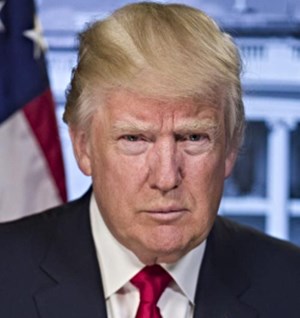Trump rolls back drilling rules sparked by 2010 Gulf Oil spill
WASHINGTON (Bloomberg) -- The Trump administration plans to relax offshore drilling requirements imposed in response to the Deepwater Horizon disaster that killed 11 people in 2010 and unleashed the worst oil spill in U.S. history.
The Interior Department will unveil its final plan Thursday to ease some of the mandates, following industry complaints they are unwieldy and expensive, said two people familiar with the matter who asked not to be named before a formal announcement. The White House Office of Management and Budget said it had completed a review of the drafted regulation on Monday, clearing it for a final release.
The measure is set to ease requirements for real-time monitoring of offshore operations and mandated third-party certifications of emergency equipment that can be summoned as a last resort to block explosive surges of oil and gas flowing up from wells. Many of the final changes were already outlined in a proposal released last year.
Trump administration officials previously cast the changes as a surgical revision of the Obama-era rule, arguing the rewrite would better align with voluntary industry standards, decrease downtime on rigs and lead to more than $900 million in oil industry savings over the next decade.
The Bureau of Safety and Environmental Enforcement said last year the measure responds to oil and natural gas companies that “raised concerns about certain regulatory provisions that impose undue burdens on their industry but do not significantly enhance worker safety or environmental protection.”
Conservationists and safety advocates warned the planned rollbacks in the agency’s proposed version would “put the environment, the economy and workers’ lives at risk.” They argue the administration hasn’t pointed to any studies, investigations or reports justifying its plan to roll back vital safeguards inspired by the Deepwater Horizon disaster in the Gulf of Mexico.
“The Trump administration is once again putting corporate profits over safety by gutting the primary offshore drilling safety measure put in place to prevent the next massive oil spill,” said Amit Narang, a regulatory policy expert at the watchdog group Public Citizen. “As the public just saw with the Boeing crashes, letting the offshore drilling industry regulate itself is a recipe for disaster.”
The underlying requirements were developed over six years and finalized by the Obama administration in April 2016 in response to recommendations from investigators who probed BP Plc’s Macondo well failure. The 2010 disaster, caused when flammable gas surged out of the well and ignited on board Transocean Ltd.’s Deepwater Horizon drilling rig, killed 11 workers and sent oil spewing into the water, fouling coastlines and harming marine life.
Oil industry leaders stress that much has changed in the wake of that disaster, and they argue the Trump administration’s move won’t undo other, critical reforms, including federal requirements for companies to holistically assess and manage rigs at their offshore facilities. Drilling standards imposed with months of the spill also will be untouched, as will voluntary industry efforts to promote safety.
The American Petroleum Institute has argued the Obama-era rule imposed “a one-size-fits-all approach” with “arbitrary” requirements that ignore the unique characteristics of every well, including varying geological conditions, depths, pressures and temperatures. Trump administration changes will provide flexibility for oil companies to adapt to various offshore conditions and foster innovations, industry leaders say.
The safety bureau is set to change requirements for certifying blowout preventers, the massive devices made famous in the BP spill because the one sitting on top of the Macondo well failed to stop the lethal surge of oil and explosive gas. The heart of blowout preventers are their sealing and shearing blades, which can be activated in emergencies to sever drill pipe in a well and close it off, keeping rushing oil and gas locked within.
The bureau is set to remove requirements for bureau-approved organizations to regularly analyze and certify the blowout preventers used at offshore oil facilities. Instead, independent third-parties could conduct the reviews.



